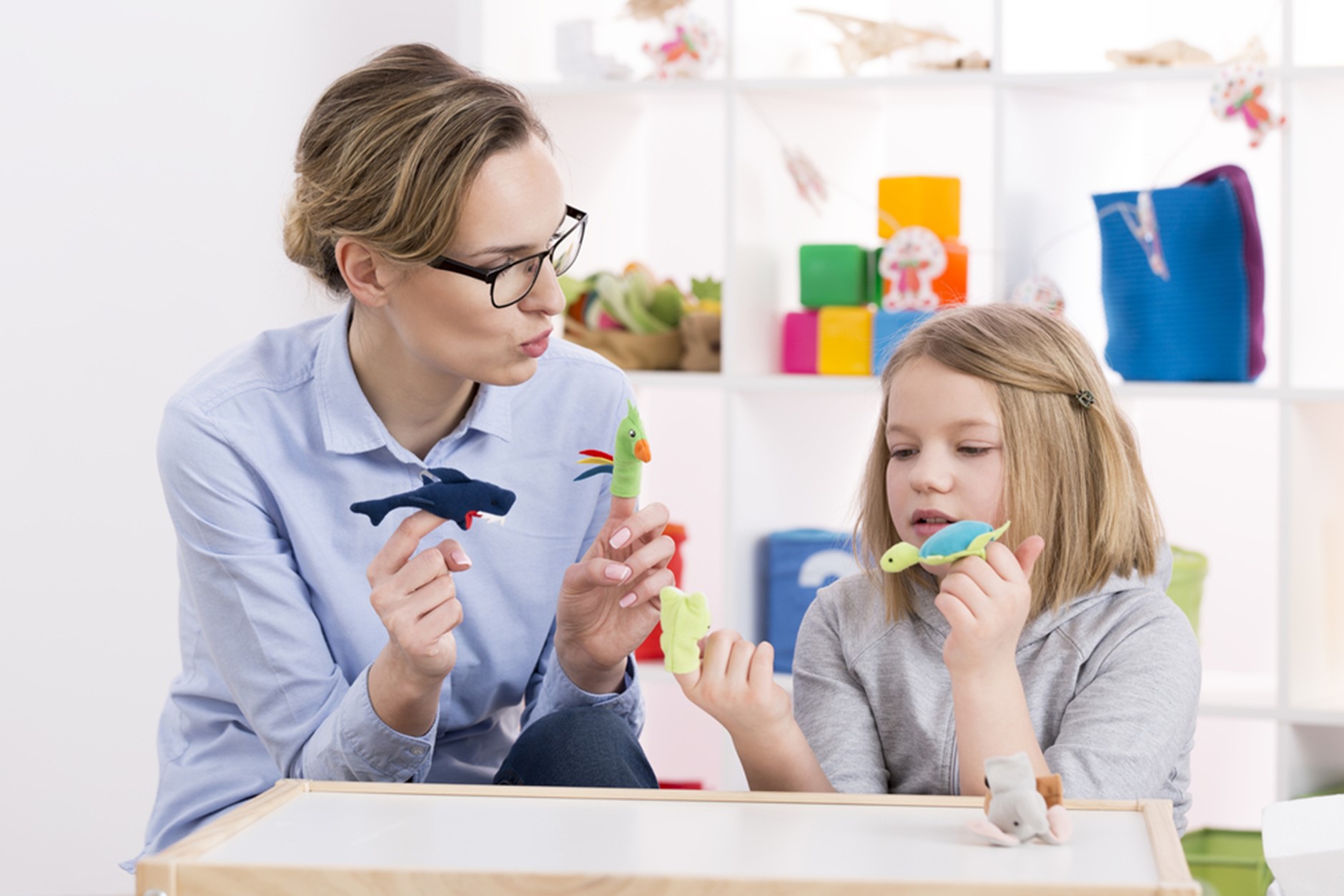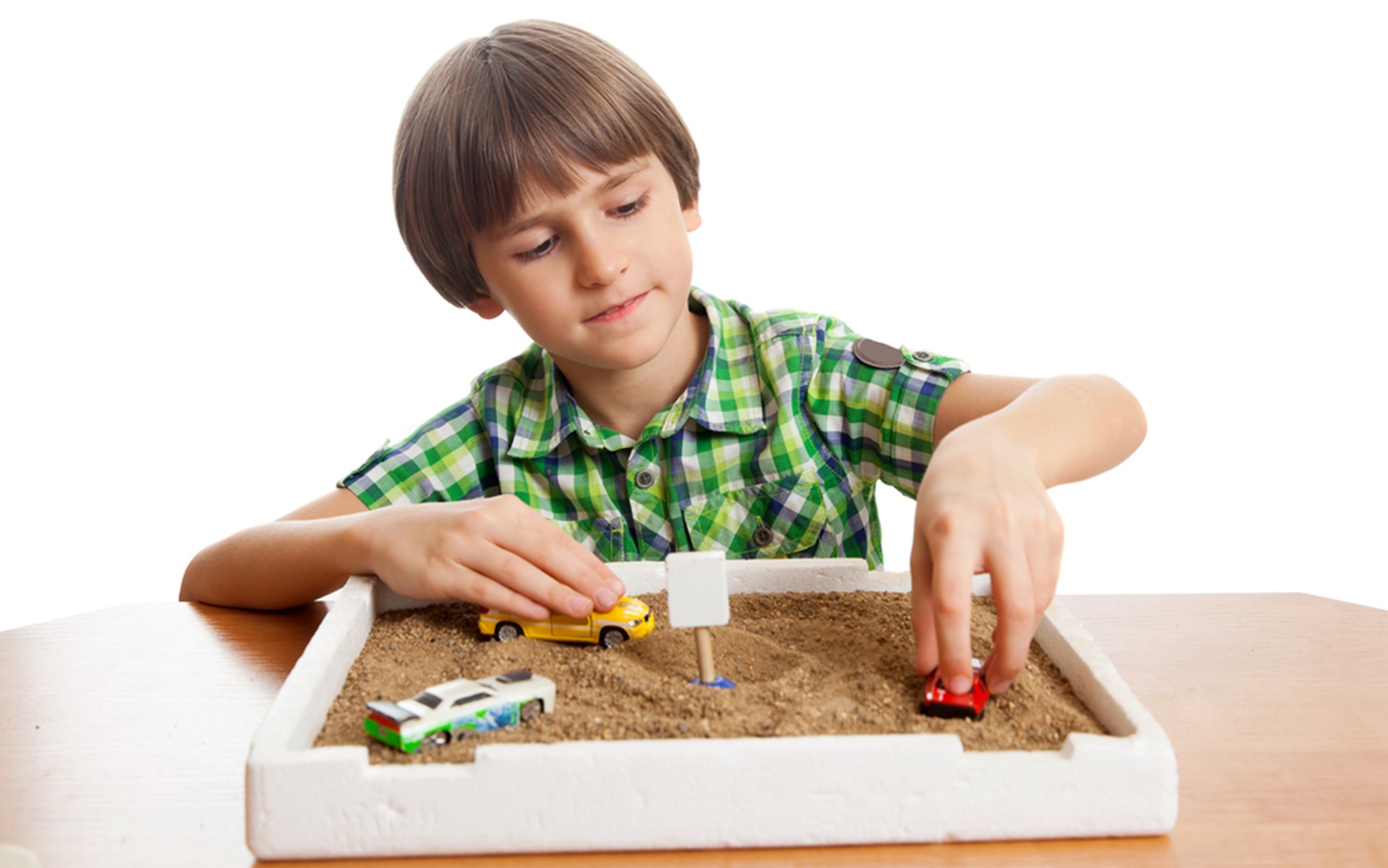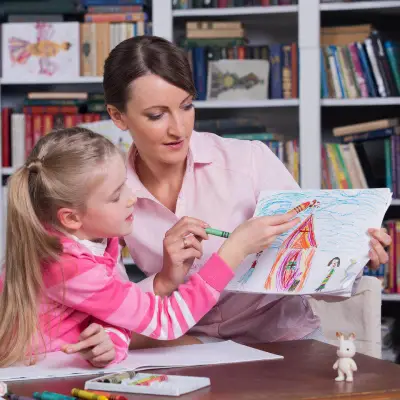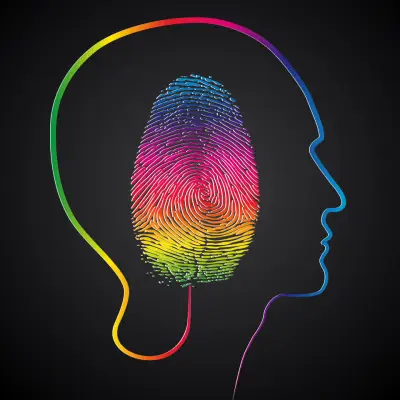If you work in or are interested in education, child psychology or counselling for children, chances are you may have heard of play therapy.
Understanding play therapy can be a game-changer for many seeking supportive and therapeutic avenues for themselves or their loved ones. This form of therapy taps into the natural medium of communication and learning for children and even adults, offering a powerful, transformative approach to healing and emotional growth.
Let's dive into the heart of play therapy, exploring what it is, its incredible benefits, and how it can positively impact lives.
Jump to:
What is Play Therapy?
Play therapy is a therapeutic approach that uses play to help people, especially children, express themselves, explore their emotions, and address psychological issues. It operates on the principle that play is a fundamental language of children through which they can express thoughts and feelings that might be hard to verbalise. This form of therapy offers a safe and supportive environment where people can explore and make sense of their world.
How Does Play Therapy Work?
You might wonder, how exactly does playing with toys or engaging in creative activities translate to therapy? The magic of play therapy lies in its ability to let people express subconscious thoughts and feelings through play, which a trained therapist can then interpret and address. This process helps understand and resolve issues, building a stronger, more positive self-concept.
The Role of a Play Therapist
A play therapist is a guide and a supportive presence, helping people navigate their feelings and thoughts through play. The role of a play therapist is varied, encompassing the creation of a safe and accepting space where healing can begin. They are skilled professionals, often with backgrounds in psychology or counselling, trained to understand the meanings behind play activities and facilitate positive change.

Types of Play Therapy
Play therapy can take various forms, each tailored to meet individual needs. Some of the most common types include:
Non-directive Play Therapy
Non-directive play therapy, also known as child-centred play therapy, is founded on allowing the child to lead the session. In this approach, the therapist provides a variety of play materials — from art supplies and dolls to building blocks and natural objects — and lets the child choose how to engage with them.
This freedom in play helps empower the child, giving them control in the therapeutic space and allowing them to express themselves in ways they feel most comfortable. Through this process, the therapist can gain insights into the child's thoughts and feelings, helping to address underlying issues in a supportive and non-intrusive manner. This type of play therapy is particularly effective in fostering self-esteem, creativity, and emotional expression.
Directive Play Therapy
Directive play therapy involves the therapist taking a more active role in guiding the session. This might involve suggesting specific activities or introducing toys likely to elicit responses relevant to the child's therapeutic goals.
For example, a therapist might use role-play scenarios to help a child navigate social situations or use board games to encourage turn-taking and patience. Directive play therapy can be especially helpful for children needing more structure or working towards specific behavioural or emotional objectives. It allows therapists to introduce therapeutic concepts directly and work on skills that can be applied in real-world situations.
Sand Tray Therapy
Sand tray therapy offers a unique, tactile medium for expression and exploration. In this type of therapy, people use a sandbox filled with sand and various miniature figures and objects to create scenes. These scenes represent anything from personal experiences and inner thoughts to hopes and fears. Manipulating the sand and objects can be therapeutic in itself, offering a sense of calm and focus.
For the therapist, the scenes created in the sand tray provide a window into the person’s inner world, allowing for a deeper understanding of their emotional state and cognitive processes. Sand tray therapy is valued for its ability to bypass verbal barriers, making it effective for individuals who may find it challenging to express themselves through words.
Lego Therapy
Lego therapy harnesses the universal appeal of Lego bricks as a tool for therapeutic engagement. This innovative form of play therapy emphasises creativity, problem-solving, and social interaction. During Lego therapy sessions, people might be tasked with specific building projects that require communication, collaboration, and negotiation with peers or the therapist.
These activities are designed to improve social skills, such as sharing, turn-taking, and verbal communication, in a fun and engaging environment. Lego therapy has been particularly successful with children and adolescents on the autism spectrum, as it provides a structured yet flexible medium for social learning and expression.

Play Therapy Benefits
Play Therapy’s benefits stretch across emotional, cognitive, social, and behavioural domains, making it a versatile and effective therapeutic approach for people, especially children. Here are the key benefits of play therapy:
1. Safe Expression of Emotions
One of the most significant benefits of play therapy is its ability to provide a safe, non-threatening environment for individuals to express their emotions. Through play, children can explore feelings of anger, sadness, fear, or joy in a space where emotions can be externalised and examined from a distance.
This process is important for emotional regulation, as it allows children to identify and name their feelings, understand that it's okay to express them and learn healthy ways to manage them. For many children, play becomes a language through which they can communicate their innermost thoughts and feelings without the pressure to articulate them verbally.
2. Development of Problem-solving Skills
Play therapy naturally encourages problem-solving and critical thinking. Whether figuring out how to build a structure, navigate the rules of a game, or resolve a conflict during role-play, children learn to think creatively and apply solutions to challenges.
This aspect of play therapy helps develop cognitive abilities that are essential for academic success and daily living. It fosters a mindset of resilience and adaptability as children learn through trial and error, discovering that setbacks are part of learning and growth.
3. Enhancement of Communication and Social Skills
Children develop and refine their communication and social skills through interactive play scenarios. Play therapy often involves sharing, negotiating, and cooperating with the therapist or peers, which teaches essential social norms and expectations.
For children who struggle with social interactions, such as those with autism spectrum disorder (ASD) or attention-deficit/hyperactivity disorder (ADHD), play therapy provides a structured yet flexible environment to practice and improve these skills. Enhanced communication abilities also extend to verbal and non-verbal skills, helping children to articulate their thoughts better and understand the cues of others.
4. Supportive Processing of Trauma
For children who have experienced trauma, play therapy offers a crucial avenue for processing their experiences. Through play, traumatic events can be re-enacted and explored in a controlled, therapeutic setting. This method allows children to confront their fears and anxieties symbolically, making it easier to digest and cope with their experiences.
The supportive presence of a play therapist ensures that children feel seen, heard, and understood, providing a corrective emotional experience that is fundamental to healing.
5. Improvement in Behaviour and Adaptation to Social Norms
Play therapy effectively addresses behavioural issues and helps children adapt to social norms. Children learn about consequences, empathy, and respect for others by engaging in therapeutic play. They gain insights into appropriate ways to express themselves and interact with the world around them.
For those with behavioural challenges, play therapy can be tailored to focus on specific areas of concern, providing practical strategies to modify behaviour. The skills learned in the therapeutic setting often translate to other areas of life, improving school, home, and social environments.

Play Therapy for Different Needs
Play therapy has been found effective for a wide range of needs, including:
- Anxiety and Depression: Offers a way to express feelings and learn coping mechanisms.
- ADHD and Autism: Helps improve focus, social skills, and understanding of social cues.
- Behavioural Issues: Assists in recognising and modifying behaviour patterns.
Play Therapy for Different Cultures
Cultural sensitivity is essential in play therapy to ensure that therapeutic interventions are respectful, relevant, and effective for individuals from diverse backgrounds. Play therapists are trained to be mindful of cultural norms, values, and expectations that influence how people express themselves and interact with the world.
- Cultural Toys and Games: Incorporating toys, games, and activities that reflect the child's cultural background can make therapy more engaging and meaningful. This approach helps validate the child's experiences and fosters a deeper connection with their heritage.
- Language and Communication Styles: Attention to cultural variations in communication styles and emotional expression is essential. Therapists might need to adjust their approach based on the child's cultural context, ensuring that therapy remains an inclusive and safe space for expression.
- Family Involvement: In many cultures, family plays a central role in a person’s life. Incorporating family sessions or considering the family's perspective on play and therapy can enhance the therapeutic process and outcomes.
Play Therapy for Different Ages
While play therapy is traditionally associated with children, its principles and techniques are adaptable and beneficial for teenagers and adults. Understanding how play therapy is tailored to different age groups can illuminate its versatility and broad applicability.
- For Children: Play therapy offers a natural and intuitive way to express their emotions and experiences. Therapists may use a variety of play materials, including toys, art supplies, and games, to help children process their feelings and work through trauma or behavioural issues.
- For Teenagers: With adolescents, play therapy might evolve to include more complex games, digital media, and art projects. These methods help bridge the gap between child-like play and adult conversation, providing a comfortable space for teenagers to explore their identities, relationships, and challenges.
- For Adults: Although less common, play therapy for adults can be effective, particularly for those dealing with trauma, emotional blocks, or mental health issues. Techniques such as sand tray therapy or therapeutic role-play can offer pathways to express and understand emotions and experiences that might be difficult to articulate verbally.
Play Therapy vs Counselling
While traditional counselling involves verbal communication to explore and solve problems, play therapy provides a non-verbal, creative, and engaging alternative. This makes it particularly effective for those who may find it challenging to express themselves through words alone, such as children or people with certain developmental challenges.
Recommended for you!
Best SellersResearch and Evidence Base
The effectiveness of play therapy is supported by a growing body of research highlighting its benefits across various conditions and populations. A summary of key findings provides insight into the evidence-based impact of play therapy.
- General Effectiveness: Research indicates that play therapy can lead to significant improvements in children's emotional and behavioural issues, including anxiety, depression, aggression, and social skills. A meta-analysis published in the Journal of Clinical Child & Adolescent Psychology found that play therapy has a moderate to large positive effect on children's outcomes, regardless of age, gender, or the nature of their issues.
- Impact on Specific Conditions: Studies have shown that play therapy can be particularly beneficial for children with autism, ADHD, and those who have experienced trauma. For instance, children with autism who participated in play therapy sessions demonstrated improved social interaction and communication skills.
- Cultural Efficacy: Research exploring play therapy's cultural adaptability suggests that outcomes improve significantly when therapists incorporate culturally relevant materials and approaches. This highlights the importance of culturally informed practice in enhancing the therapeutic experience and effectiveness.
- Research and Evidence Base: Evidence suggests that the benefits of play therapy extend beyond immediate behavioural and emotional improvements. Longitudinal studies indicate that children who undergo play therapy experience lasting changes in their ability to cope with stress, form healthy relationships, and maintain emotional well-being.
Becoming a Play Therapist
To become a play therapist, you'll need specific training and qualifications. This journey typically starts with a bachelor's degree in psychology, counselling, social work, or a related field. Following this, prospective play therapists often pursue specialised postgraduate training in play therapy, where they learn about different types of play therapy, therapeutic play, and the theories behind this practice.
Play Therapy Qualification
A postgraduate certificate or diploma in play therapy is essential in the UK. Accredited courses provide theoretical knowledge and practical experience to become a proficient play therapist. These courses cover various topics, including non-directive play therapy, sand play therapy, and therapeutic sand trays.
Starting Your Career
Once you have the qualifications, starting your career as a play therapist is the next step. Many play therapists work in schools, hospitals, mental health clinics, or private practice. Building a career in play therapy requires a commitment to ongoing learning and development and a passion for helping others through the power of play.
Becoming a Play Therapist in the UK
In the UK, becoming a registered play therapist with the British Association of Play Therapists (BAPT) or another professional body is an important step. This enhances your credibility and connects you with a network of professionals and resources to support your practice.
Discover Play Therapy with Centre of Excellence
Dive into the transformative world of play therapy with our Play Therapy Diploma Course at Centre of Excellence. Perfect for professionals and individuals alike, this online course offers a rich understanding of play therapy's principles, methods, and applications.
What You'll Learn
- Core Principles: Discover the foundations of play therapy and its significance in development and healing.
- Techniques & Applications: Master various play therapy techniques, from sand tray to Lego therapy, tailored for different needs.
- Skill Development: Enhance your ability to create a therapeutic environment and connect deeply with clients through play.
- Specialised Knowledge: Learn to adapt play therapy for diverse populations, addressing anxiety, trauma, and behavioural challenges.
- Professional Practice: Understand the ethical framework that guides safe and effective play therapy practice.
Special Offer
We're excited to offer our Play Therapy Diploma Course at a discounted price of £29, saving you over £100! It's an exceptional opportunity for those looking to enrich their skills or explore the benefits of play therapy.













